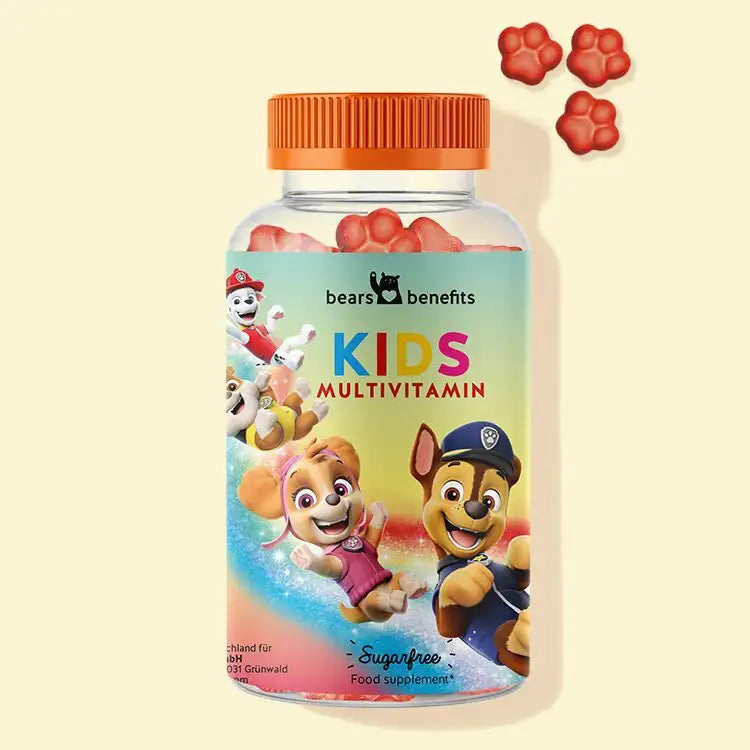FOLIC ACID (VITAMIN B9) - WHAT IT IS, EFFECTS AND INTAKE
WHAT IS FOLATE OR FOLIC ACID?
Folic acid is also known as vitamin B9 and, like vitamin C, it belongs to the group of water-soluble vitamins. However, folic acid is a vitamin that humans cannot produce themselves. According to studies, there are certain bacteria in the human digestive tract that can produce folic acid. But vitamin B9 is found in both animal and plant foods.

DIFFERENCE BETWEEN FOLIC ACID AND FOLATE
Folate is a water-soluble vitamin that is naturally found in plant and animal foods. It is essential to consume sufficient folate in the diet, as it is involved in many metabolic processes.
Folic acid, on the other hand, is the synthetically produced form of folate, which is used for fortification and is found in food supplements. Folic acid does not exist naturally and is a purely laboratory-created product.
WHAT ARE THE BENEFITS OF TAKING FOLATE OR FOLIC ACID?
Taking folate or folic acid is very important because, among other things, it is involved in the production of genetic material. Vitamin B9 plays a decisive role in cell growth and red and white blood cell formation. That is why avoiding a folic acid deficiency at all costs is important. A deficiency can lead to anaemia and inflammation of the mucous membranes, breathing difficulties, and tingling or burning of the tongue. Unborn children are also at risk of a developmental disorder of the nervous system due to a folic acid deficiency in the mother. Spina bifida, i.e. an "open back", can develop. In the case of spina bifida, the area of the spinal column at the spinal cord remains open.

WHY IS FOLATE OR FOLIC ACID IMPORTANT IN PREGNANCY?
As already mentioned, folic acid is involved in many metabolic processes, cell division, and formation. Especially during pregnancy, attention should be paid to the folate or folic acid supply because it plays a central role in placental growth and the development of the child's neural tube. The neural tube is the annexe of the central nervous system of the unborn child, from which the spinal cord and spinal column develop. A deficiency of folate can, therefore, lead to malformations or even miscarriages. For this reason, an adequate supply of folate should be ensured from the time a child is wanted through a folate-rich diet, and folic acid should be supplemented. According to studies, the mother's folate requirement increases by approximately 83% during pregnancy.

WHICH FOODS CONTAIN FOLATE OR FOLIC ACID (VITAMIN B9)?
Everyone can get vitamin B9 through their diet. Green vegetables such as spinach and lettuce, tomatoes, nuts, legumes, wholemeal products, eggs and liver are considered rich in vitamin B9.
It is important to prepare these foods as gently as possible because, as already mentioned, they are very heat-sensitive and water-soluble. Therefore, it is recommended to steam the vegetables instead of boiling them.
But our One Bear A Day Immune Vitamins, Ah-Mazing Hair Vitamins, and Trust Your Gut Vitamins contain folic acid.

NASSIM JAMALZADEH:
"Folate or folic acid is not only important for the immune system but also plays an important role in the growth of maternal tissue during pregnancy. Folate or folic acid also contributes to normal blood formation and normal mental function. Folic acid or folate is very important, especially for women who want to become pregnant or are pregnant. Therefore, it must not be missing in the diet."
FAQS about folic acid
FAQS about folic acid
How often you should take vitamin B9 depends on you. An additional intake is unnecessary if you get plenty of it from your diet and can thus cover your daily needs. It's best to ask your doctor and have regular blood work done. However, women who want to become pregnant or are pregnant are recommended to take additional folic acid.
This depends mainly on your gender and age and various other factors, such as whether you are pregnant, breastfeeding or have any illnesses.
However, the NHS (National Health Services) recommends a daily amount of 300 µg. A higher folate or folic acid intake is recommended for pregnant and breastfeeding women. The daily amount would be between 450-550 µg. However, it must be mentioned that the information from the NHS are recommendations and not maximum amounts.
An overdose of folate or folic acid is very rare and actually not possible. What the body takes in too much folate or folic acid is automatically excreted by the kidneys. That is why you should not worry about an overdose of folate or folic acid.
Let customers speak for us
STUDIES ON THE IMPORTANCE OF FOLIC ACID
We provide the following scientific studies for your general information. The results obtained in these studies do not necessarily apply to all people. Feel free to click on the relevant links for more detailed information.
Folate deficiency and folic acid supplementation: prevention of neural tube defects and congenital heart defects
This review is about the relationship between folate deficiency and birth defects such as, neural tube defect.
Folate and gastrointestinal health
This report addresses the question of whether folate deficiency has an impact on gastrointestinal health.
Our bears with folic acid
Our bears with folic acid




















